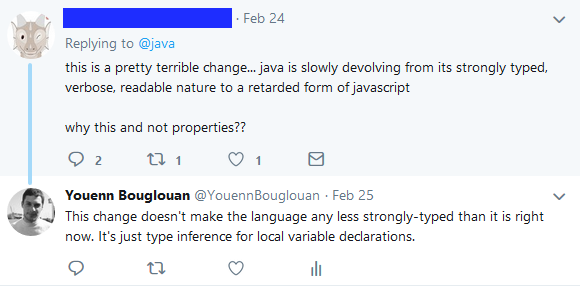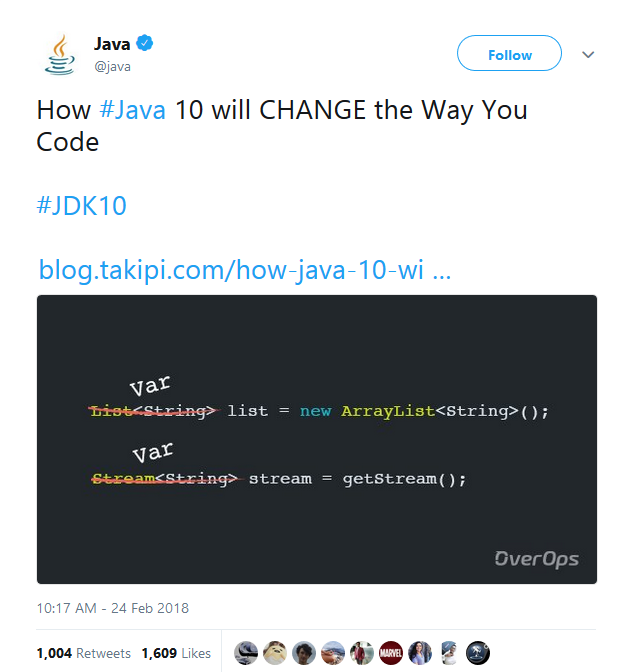Full name: index.x
Full name: index.y
val char : value:'T -> char (requires member op_Explicit)
Full name: Microsoft.FSharp.Core.Operators.char
--------------------
type char = System.Char
Full name: Microsoft.FSharp.Core.char
val int : value:'T -> int (requires member op_Explicit)
Full name: Microsoft.FSharp.Core.Operators.int
--------------------
type int = int32
Full name: Microsoft.FSharp.Core.int
--------------------
type int<'Measure> = int
Full name: Microsoft.FSharp.Core.int<_>
val int16 : value:'T -> int16 (requires member op_Explicit)
Full name: Microsoft.FSharp.Core.Operators.int16
--------------------
type int16 = System.Int16
Full name: Microsoft.FSharp.Core.int16
--------------------
type int16<'Measure> = int16
Full name: Microsoft.FSharp.Core.int16<_>
val string : value:'T -> string
Full name: Microsoft.FSharp.Core.Operators.string
--------------------
type string = System.String
Full name: Microsoft.FSharp.Core.string
from Microsoft.FSharp.Core
val double : value:'T -> double (requires member op_Explicit)
Full name: Microsoft.FSharp.Core.ExtraTopLevelOperators.double
--------------------
type double = System.Double
Full name: Microsoft.FSharp.Core.double
Full name: Microsoft.FSharp.Core.bool
module List
from Microsoft.FSharp.Collections
--------------------
type List<'T> =
| ( [] )
| ( :: ) of Head: 'T * Tail: 'T list
interface IEnumerable
interface IEnumerable<'T>
member GetSlice : startIndex:int option * endIndex:int option -> 'T list
member Head : 'T
member IsEmpty : bool
member Item : index:int -> 'T with get
member Length : int
member Tail : 'T list
static member Cons : head:'T * tail:'T list -> 'T list
static member Empty : 'T list
Full name: Microsoft.FSharp.Collections.List<_>
Full name: Microsoft.FSharp.Core.Operators.id
from Microsoft.FSharp.Core
Full name: Microsoft.FSharp.Core.Operators.enum
Full name: Microsoft.FSharp.Core.option<_>
Do you even type, Bro?
Who am I?
Youenn Bouglouan
C# by day, F# by night
Why today's topic?
Waterfall vs Agile
Java vs C#
PC vs Mac (vs Linux)
Object Oriented vs Functional
Weakly Typed vs Strongly Typed
Who is this presentation for?
Developers -> get a better idea of what's out there
QA Specialists -> understand why there are bugs and issues
Part I
Typing 101
What's a Type ?
A way to represent
primitive types (int, bool, char, float...)product types (classes, records, objects, tuples...)sum types (unions but not only... we'll see those later!)sets (lists, arrays, maps, dictionaries...)functions (!)interfaces (!)
What's a Type System ?
For a given language:
- defines the
kind of types available maps types to the variousconstructs (expressions, variables, functions... )- determines how types
interact with each other - sets the
rules that make a type either valid or invalid
Typing:
Dynamic vs Static
Dynamic
types are checked at
1: 2: 3: 4: 5: |
|
Static
Types are checked at
1: 2: 3: 4: 5: |
|
Typing:
Weak vs Strong
Not the same as Dynamic vs Static!
Weak
type checking is not (very) strict
implicit conversions (usually)
little guarantees on the program's correctness
Weak typing in a dynamic language
1: 2: 3: 4: 5: 6: 7: 8: 9: |
|
Weak typing in a static language - 1
1: 2: 3: 4: 5: 6: 7: 8: 9: |
|
Weak typing in a static language - 2
1: 2: 3: 4: 5: 6: 7: 8: 9: 10: 11: 12: |
|
Strong
Type checking is strict(er)
program's correctness is easier to prove (well, in theory)
conversions must be explicit
Strong typing in a dynamic language
Back to our first example in Python!
1: 2: 3: 4: 5: |
|
Strong typing in a static language
1: 2: 3: 4: 5: 6: 7: 8: 9: 10: |
|
Typing:
Nominal vs Structural
applies to static typing
Nominal
Very popular in mainstream languages like C#, C++, or Java
Types are identified by their respective
1: 2: 3: 4: 5: 6: 7: 8: 9: 10: 11: 12: |
|
Structural
Also called row polymorphism
Types are identified by their respective
Present under different forms in Elm, Go, TypeScript, Scala, OCaml, Haskell...
1: 2: 3: 4: 5: 6: 7: 8: |
|
But there's more...
Structural subtyping
Beware the awesomeness!
1: 2: 3: 4: 5: 6: 7: 8: 9: 10: |
|
The actual structure of the types is checked as compile-time, making this super safe while giving a dynamic feel to the language
Structural typing
for implicit interface implementation
1: 2: 3: 4: 5: 6: 7: 8: 9: 10: 11: 12: 13: 14: 15: 16: 17: 18: 19: 20: |
|
Duck Typing
If it looks like a duck, swims like a duck, and quacks like a duck, then it probably is a duck.
basically the same as structural typing, but at
1: 2: 3: 4: 5: 6: 7: 8: 9: 10: 11: 12: 13: 14: 15: 16: 17: |
|
A word about Type Inference



Basic Type Inference
1: 2: 3: 4: 5: 6: 7: 8: 9: 10: 11: 12: |
|
Advanced Type Inference
1: 2: 3: 4: 5: 6: 7: 8: 9: 10: 11: 12: 13: 14: 15: 16: 17: 18: |
|
https://en.wikipedia.org/wiki/Hindley%E2%80%93Milner_type_system
Part II
So, do you even type??
Let's start with a simple example
1: 2: 3: 4: 5: 6: 7: 8: 9: 10: 11: 12: |
|
A possible and plausible implementation
1: 2: 3: 4: 5: 6: 7: 8: 9: 10: 11: 12: 13: 14: 15: 16: 17: 18: |
|
Possible outcomes
value of dto |
Result of Validate(...) |
Result of CreateCustomer(...) |
|---|---|---|
not null |
true |
new Customer |
not null |
false |
|
null |
failure |
Other possible scenarios:
- _dbService is
null ->throws exception - _dbService
throws exception -> failure
Let's take a step back
1: 2: 3: 4: |
|

Just another LOB app
1: 2: 3: 4: 5: 6: 7: 8: 9: 10: 11: |
|
A few bug reports later...
1: 2: 3: 4: 5: 6: 7: 8: 9: 10: 11: 12: 13: 14: 15: 16: 17: 18: 19: 20: 21: |
|
Slapping a try-catch there too, just in case of!
1: 2: 3: 4: 5: 6: 7: 8: 9: 10: 11: 12: 13: 14: 15: 16: 17: 18: 19: 20: 21: 22: 23: |
|
So now we know what the problem is
exceptions and nulls make our code brittle and unreliable
What can we do about it?
Get rid of nulls and exceptions altogether!

Let's see how to achieve this in 3 little steps
Step 1
Introducing sum types and pattern matching
Sum types can be seen as enums on steroids !
Also called Choice Types, Discriminated Unions, Tagged Unions...
Available in F#, Elm, Haskell, TypeScript, Scala, Rust, Swift...
Very powerful when combined with exhaustive pattern matching
Demo - sum types and pattern matching
sum types and pattern matching in a nutshell
1: 2: 3: 4: 5: 6: 7: 8: 9: 10: 11: |
|
Step 2
Getting rid of nulls using Option
Just a specific sum type with 2 cases!
Option makes the possible absence of value explicit
You have to deal with it at compile time
1: 2: 3: 4: |
|
1: 2: |
|
1: 2: 3: 4: 5: |
|
Demo - fix nulls using Option
Option in a nutshell
1: 2: 3: 4: 5: 6: 7: 8: 9: |
|
Step 3
Getting rid of exceptions using Result
Yet another sum type !
Result makes both the success and error path explicit
1: 2: 3: 4: |
|
1: 2: |
|
1: 2: 3: 4: 5: |
|
Demo - fix exceptions using Result
Result in a nutshell
1: 2: 3: 4: 5: 6: 7: |
|
Enables Railway-Oriented Programming https://fsharpforfunandprofit.com/rop/
That's it!
What did we achieve?
Direct outcomes
- no more null checks everywhere
- no more exceptions and try-catches everywhere
Indirect outcomes
no more lies! - our models are more expressive (
Option ) - our code is more readable and explicit (
Result ) - the compiler is our friend ->
"if it compiles, then it works" TDD!
*Type Driven Development
